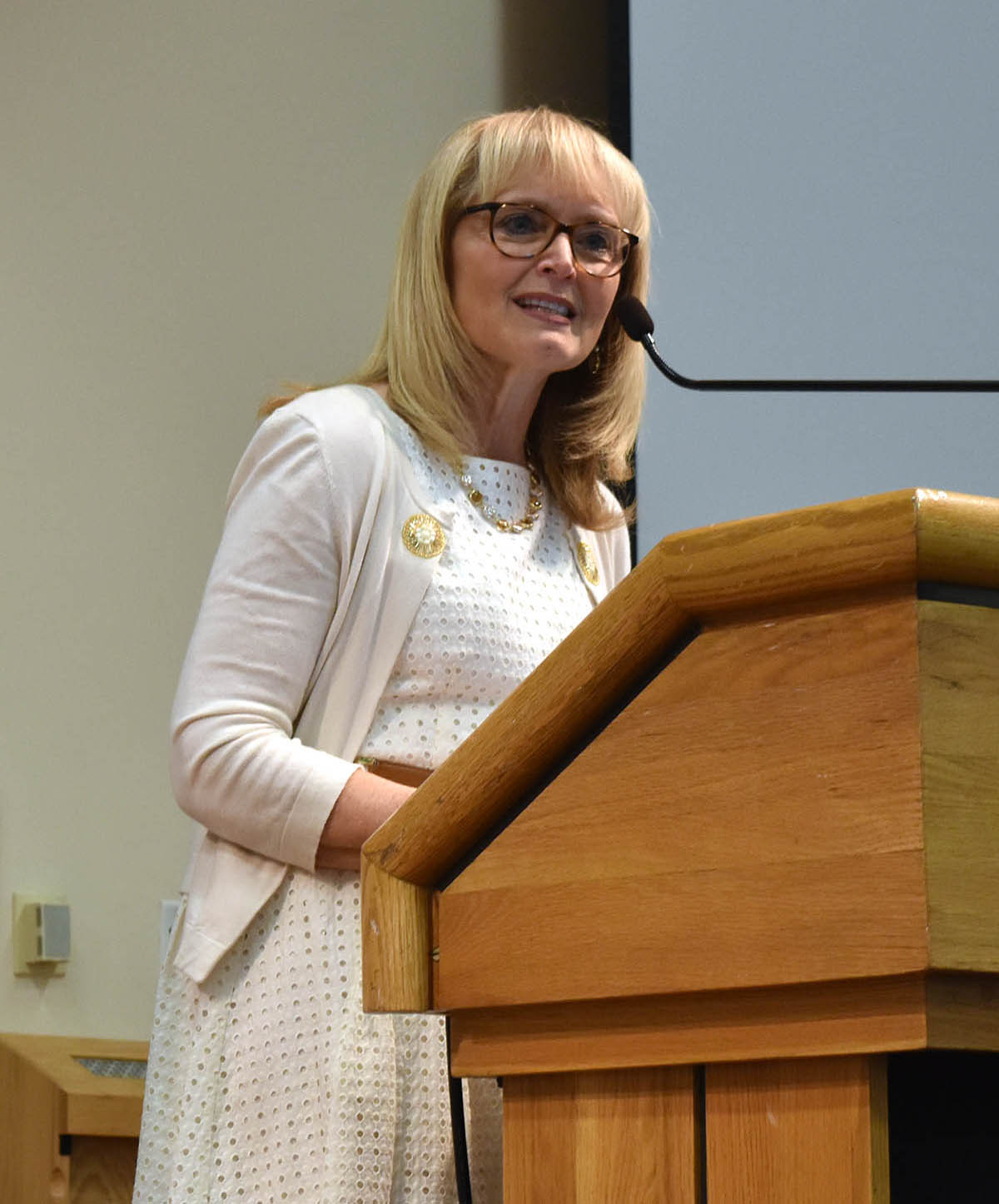General Session: Brett Scharffs and Katrina Lantos Swett speak on Religious Freedom

by George Simons, 2017 ICLRS Student Fellow
The first general session Thursday morning was moderated by W. Cole Durham Jr., Founding Director of the International Center for Law and Religion Studies. The speakers were Brett G. Scharffs, Francis R. Kirkham Professor of Law and Director of the BYU International Center for Law and Religion Studies, J. Reuben Clark Law School, and Katrina Lantos Swett, President of the Lantos Foundation for Human Rights and Justice, and the former chair of the U.S. Commission on International Religious Freedom.
In his presentation titled “Religious Freedom as an Article of Faith,” Brett Scharffs developed principles of religious freedom by drawing upon the Eleventh and Twelfth Articles of Faith of The Church of Jesus Christ of Latter-day Saints. Scharffs’ highlighted that the 11th Article of Faith does not begin with “We believe” but rather is the only Article that begins with “We claim.” This first clause “We claim the privilege of worshiping Almighty God,” illustrates the basic principle of freedom to worship. The second clause, “according to the dictates of our own conscience,” represents autonomy and moral agency which are companion rights to freedom of speech and action so long as it does not impinge on another’s rights. The third and final clause, “and allow all men the same privilege, let them worship how, where, or what they may,” embodies mutual respect and reciprocity; these principles are present in the example of tolerance of Joseph Smith and the Nauvoo City Charter. The Twelfth Article of Faith, “We believe in being subject to kings, presidents, rulers, and magistrates, in obeying, honoring, and sustaining the law,” shows a commitment to respect and to be subject to secular law.
Katrina Lantos Swett illustrated why protecting religious freedom is the primary conflict of our time in her presentation titled “Why Religious Freedom Matters to Me”. She began with the question, “If I could ask one question, what would I ask of God?” She explained that she would ask how to deal with the greatest dilemma of our time, and that dilemma would be how to deal with issues regarding religious freedom. Swett recounted the stories of the liberation of the Huguenots by the Edict of Nantes, the persecution by ISIS of the Yazidis, and John Wycliffe’s famous phrase “this Bible is for the Government of the People, by the People, and for the People.” She closed by expressing hope that the people of today will be equal to defending the sacred human right of freedom of religion.